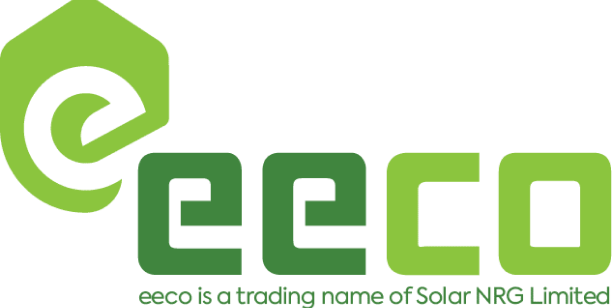Energy management services maximize energy utilization and save expenses. Third-party energy management businesses provide energy audits, energy efficiency evaluations, and energy-efficient equipment installation and monitoring. Energy management services find energy savings potential and apply efficient energy management solutions to save energy expenditures and increase sustainability.
Energy management services control an organization’s energy use comprehensively. Measure and analyze energy consumption, discover inefficiencies, create and execute energy-saving solutions, and monitor and verify outcomes. Energy management businesses or consultants assist with companies to create customized energy management programs that match their requirements and objectives.
Energy Management Services Reduce Expenses and Improve Sustainability:
Organizations that wish to cut energy expenses and increase sustainability need energy management services. Energy management solutions minimize energy use, lowering energy costs and carbon emissions. Effective energy management may also reduce environmental impact, increase energy efficiency, and foster a sustainability culture in enterprises.
Energy management services may also assist companies find new energy-related business prospects, such as developing energy-efficient goods or integrating renewable energy sources. Energy management services may also help firms keep up with new rules and best practices to prevent expensive fines and reputational harm.
Energy management services are essential for organizations that want to lower energy costs, improve sustainability, and remain competitive in a carbon-constrained world. Organizations can create customized energy management plans that meet their needs and goals and achieve measurable energy savings and environmental performance by working with energy management companies or consultants.
Solar Energy Benefits:
Solar power generates electricity. This energy source is plentiful, sustainable, and a good alternative to fossil fuels. PV cells generate power from sunshine. Rooftops or solar farms usually house these cells.
- Solar Energy Reduces Fossil Fuel Use:
Solar energy may offer electricity to isolated and underprivileged regions, cut carbon emissions, and lessen environmental impact. Solar energy is clean and sustainable since it doesn’t emit greenhouse gases or other pollutants. Solar energy may also decrease fossil fuel usage and foster energy independence, mitigating the effects of variable energy costs and geopolitical conflicts.
Solar energy may also reduce energy poverty and improve electricity availability in distant and neglected populations. In underdeveloped nations with unpredictable energy, this is crucial. Solar energy may enhance living standards, economic prospects, and social growth in these places. - Solar Energy and Sustainable Development:
Solar energy might support numerous UN Sustainable Development Goals. Solar energy can provide cheap and clean energy access (SDG 7), cut carbon emissions and battle climate change (SDG 13), and promote sustainable economic growth and development. Solar energy may also help accomplish other Goals including gender equality, health, and responsible consumption and production.
Solar energy expansion may also provide jobs and boost economies in many nations. This may boost economic development and alleviate poverty, especially in emerging nations.
Solar energy is a renewable energy source that may decrease carbon emissions, expand energy access, and support sustainable development objectives. Solar energy may decrease fossil fuel usage, alleviate climate change, and boost sustainable economic growth. - Solar Energy Management:
Optimizing solar energy usage and maximizing its advantages requires effective energy management. These solutions include energy monitoring, load shifting, demand response, and efficiency improvements. These measures may lower energy expenditures, efficiency, and environmental effect for enterprises.
Effective Energy Management Techniques Optimize Solar Energy Consumption:
Optimizing solar energy usage and maximizing its advantages requires effective energy management. Organizations may boost energy efficiency and save expenses by monitoring energy consumption and reducing energy waste. Effective energy management may also guarantee that solar energy is utilized when required, reducing energy waste and improving energy performance.
Solar Energy Management Examples:
Demand response and load shifting may improve solar energy use. Load shifting optimizes energy utilization during peak solar generation. Energy-intensive activities may be arranged during peak solar energy generation to reduce grid power use during peak demand. Demand response reduces energy use during heatwaves or harsh weather. This reduces energy expenditures and grid strain.
Energy efficiency enhancements like energy-efficient lighting and HVAC systems and energy storage to utilize extra solar energy during low solar production are other solar energy management options.
Energy Management Services Benefits:
Energy management services help firms execute these energy management techniques efficiently. Organizations may create tailored energy management strategies with the help of experts or service providers. These plans may involve solar energy optimization, energy efficiency upgrades, and other energy-saving initiatives.
Energy management services may design energy management plans, support and monitor energy- saving methods, and help companies meet energy and sustainability objectives. Energy management services may also help firms keep up with new rules and best practices to prevent expensive fines and reputational harm.
In conclusion, good energy management techniques optimize solar energy use and maximize its advantages. Load shifting and demand response may decrease energy expenditures, efficiency, and environmental effect for enterprises. Energy management services provide continuous assistance and monitoring to help firms meet their energy and environmental objectives.
Energy Management Tools:
Energy management services monitor, evaluate, and optimize energy use using various methods. Energy monitoring, smart meters, building automation, and energy storage systems are examples.
- Energy Monitors:
Real-time energy monitoring systems provide companies with precise energy use trends. These systems may monitor building or device energy usage to discover energy waste and efficiency improvements. Energy monitoring systems may inform enterprises when energy usage exceeds thresholds, preventing expensive energy overages. - Smart Meters
Smart meters provide utilities and customers real-time energy use data. These meters may monitor building or device energy usage to discover energy waste and efficiency improvements. Smart meters may also inform clients about their energy usage, raising awareness and promoting energy-saving behavior. - Building Automation:
Building automation systems improve energy usage by controlling and monitoring lights, HVAC, and ventilation. Based on occupancy, weather, and other variables, these devices may modify energy consumption. Building automation systems can discover energy waste and efficiency improvements. - Energy Storage:
Batteries and flywheels can store solar energy for usage during low solar output. These systems may supplement solar PV systems when solar production is low. Energy storage devices may also offer emergency power during grid disruptions.
These Technologies Optimize Solar Energy Consumption:
These solutions can optimize solar energy usage by offering real-time insights into energy consumption patterns, allowing enterprises to discover energy waste and efficiency improvements. Energy monitoring systems and smart meters can measure building and device energy usage, providing companies with precise energy use data. Building automation systems may improve energy usage by controlling and monitoring HVAC and lighting systems. Energy storage devices may store extra solar energy for use during low solar output, lowering grid power demand.
These technologies may be used to build an energy management system that gives enterprises a complete picture of their energy consumption and performance. Energy monitoring, building automation, and energy storage technologies may be linked to create an automated energy management system that optimizes energy use using real-time data.
Energy management services monitor, evaluate, and optimize energy use using various technologies and methods. These solutions can optimize solar energy usage by offering real-time insights into energy consumption patterns, helping companies uncover energy waste and efficiency improvements. These technologies can construct a real-time energy management system.
Conclusion:
Finally, energy management services may optimize solar energy usage and promote sustainability. Organizations may optimize energy use and minimize fossil fuel use via energy monitoring, smart meters, building automation, and energy storage systems. Load shifting and demand response may improve solar energy use.
This field has many potential research and partnership opportunities. More modern energy monitoring systems and smart meters may reveal more comprehensive energy use trends. Integrating renewable energy sources like solar and wind into energy management systems optimizes energy use and reduces fossil fuel use. New energy storage technologies may be developed to improve reliability and cost.
Optimizing solar energy use via energy management services requires collaboration. Industry, academic, and government collaboration can speed up energy management technology and strategy development. Organizations may collaborate to establish shared energy management solutions that benefit various stakeholders.
Energy management services help optimize solar energy use and promote sustainability. Advanced energy monitoring systems and smart meters, renewable energy integration into energy management systems, and novel energy storage technologies are all possibilities for future study and cooperation in this discipline. Industry, academia, government, and organizations may work together to develop and deploy these technologies and tactics faster.


